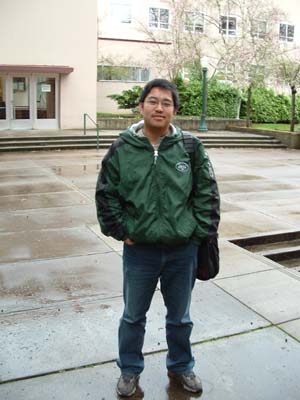|
II. Biography
|
The Luoyang fire
by Alexandra Arch On Christmas Eve, 2000, a fire swept through a Luoyang building killing 309 people. The majority of people who died were initially suffocated by the smoke while attending a Christmas party on the fourth floor of the Dongdu Department store, located in China's central Henan province. The flames had trapped the crowd by blocking the exits, and the inferno eventually swallowed up the victims and burned the structure down. It was the second worst death toll by a fire in China.
Aibing Guo, a young reporter for China Daily, a newspaper printed in English and based in Beijing, was assigned to cover the story. Guo immediately jumped on a plane to the city, located approximately 600 miles north of Beijing. As media gathered in Luoyang, details became scarce as the local government and police covered up the incident and would not cooperate with the press. Most of the press corps felt they had no choice but to wait for the official news. Guo, however, spent a couple of weeks working in Luoyang tracking down grieving relatives and gathering information. He realized that the government was promising the relatives of the victims compensation for their loss as long as they did not speak to the media. In exchange for anonymity, Guo wrote the stories of the victims, extracting the details about the fire through relatives. Guo also uncovered that the government did not have the proper fire safety equipment in the building, and as a result, the blaze became a deadly inferno. Guo even accompanied a victim's family, acting as a sibling, to a government meeting and received what he calls "the inside stories" of the dealings. "What I found was that the government tried to cover up the truth to peel off their responsibilities," Guo said. "Local governments in China have long neglected the safety equipment in public places. Most of these places are just surviving by luck." It was a breakthrough assignment in Guo's career that underscored the notion that living in China is not easy for a journalist. The communist country tightly controls the flow of information. According to Guo, journalists have to often use anonymous sources for fear of repercussion and develop alternative methods to collect information outside of the official realm. Guo rarely used deceptive tacics, such as posing as a victim's sibling, because of the inherent risks to his career. Instead he used honesty and aggressiveness to get a story. For example, Guo often cultivated official sources for information and maintained good relations with the experts at universities and institutions. Often Guo would just talk to ordinary citizens. "I found it best to contact people and get the emotional stories from the ordinary," he said. Guo's perseverance and attention to detail, as in the Luoyang fire, impressed his bosses at China Daily. Those and other qualities would eventually help catapult Guo into attaining a professional dream--becoming a war correspondent. |
